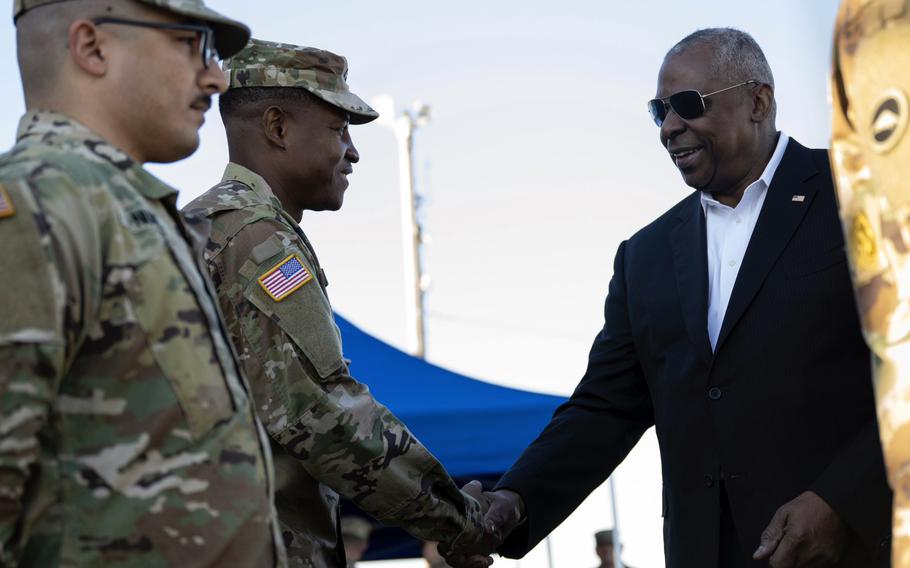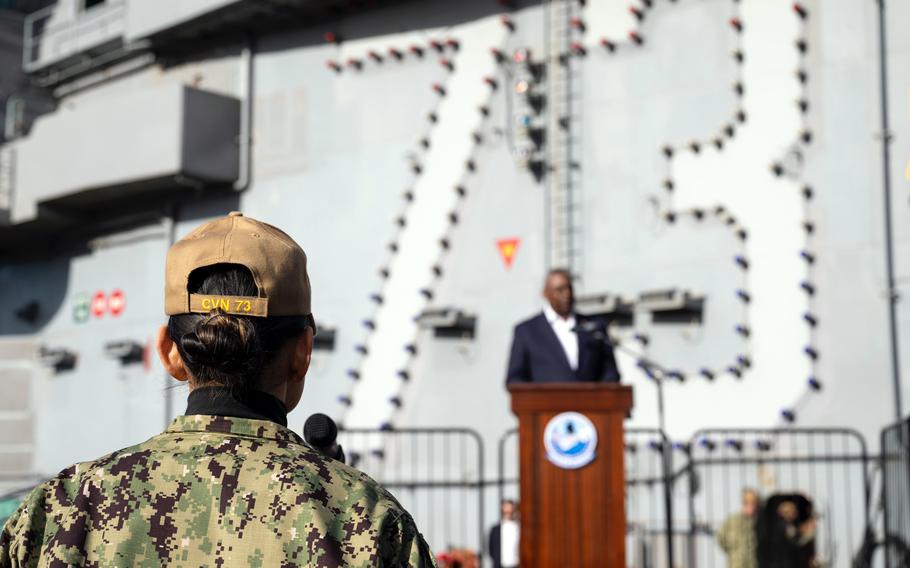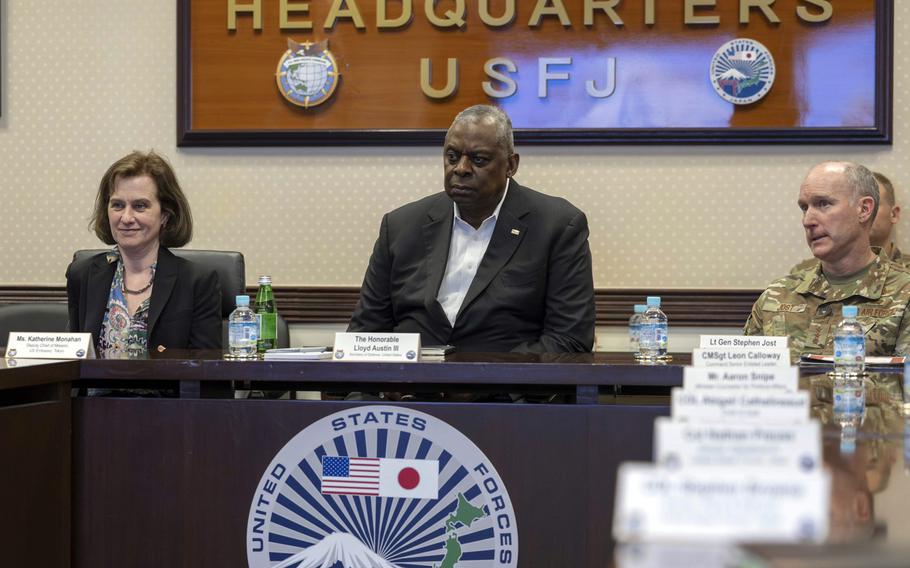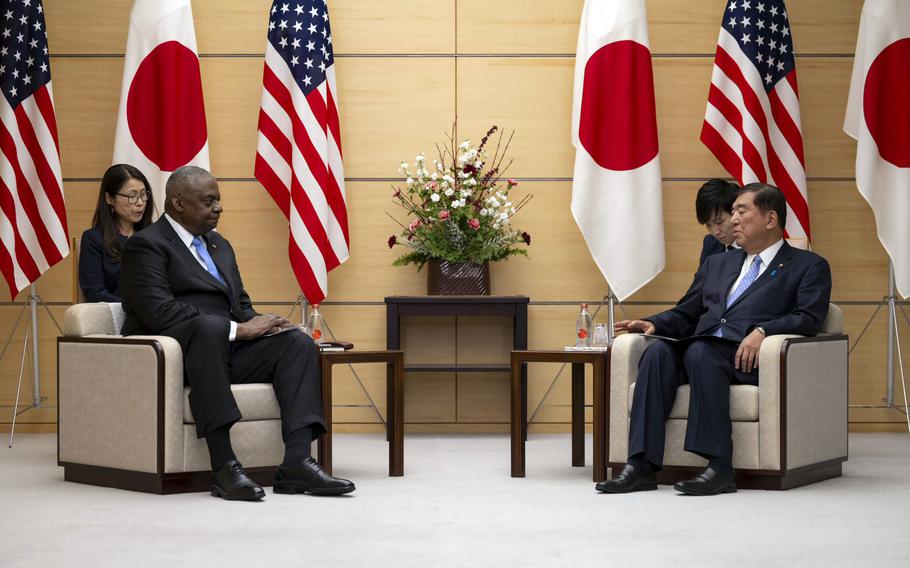
Secretary of Defense Lloyd Austin meets with soldiers at Yokohama North Dock, a port facility south of Tokyo, Dec. 10, 2024. (Department of Defense)
TOKYO — Lloyd Austin, on his last visit to Japan as defense secretary, reiterated U.S. support for ally South Korea as it works through the repercussions of its president’s attempt a week ago to impose martial law.
Austin took on a full day of meetings Tuesday with Japanese Prime Minister Shigeru Ishiba, Defense Minister Gen Nakatani and U.S. soldiers.
“We remain committed to advancing our historic trilateral cooperation with [South Korea],” he said at the start of the ministerial meeting that evening in Tokyo. “Let me be clear: America’s extended deterrence commitment to Japan and [South Korea] is ironclad.”
Austin said the same thing Monday at Yokosuka Naval Base, where he spoke with sailors aboard the aircraft carrier USS George Washington.

Secretary of Defense Lloyd Austin speaks to sailors aboard the aircraft carrier USS George Washington at Yokosuka Naval Base, Japan, Dec. 9, 2024. (Department of Defense)
Senior Defense Department leaders — including the chairman of the Joint Chiefs of Staff, Air Force Gen. Charles “CQ” Brown — “have all continued to engage with their [South Korean] counterparts to ensure that … we maintain open lines of communication and stay focused on the task at hand,” Austin told reporters aboard the George Washington, according to a Pentagon transcript.
The secretary isn’t expected to stop in South Korea in the wake of President Yoon Suk Yeol’s failed attempt to impose martial law.
At Tuesday’s ministerial meeting, Austin called out Beijing for coercive behavior in the East and South China seas and North Korea for its support of Russia in its war against Ukraine.
“We’re clear-eyed about the challenges to peace and stability in this region,” he said.
Austin posted a video of his arrival Monday at Yokota Air Base, the headquarters of U.S. Forces Japan in western Tokyo, on social platform X. Later that day, he flew to Yokosuka to speak to sailors aboard the George Washington, according to a Department of Defense news release.

Secretary of Defense Lloyd Austin meets with U.S. Forces Japan officials at Yokota Air Base in western Tokyo, Dec. 10, 2024. (Department of Defense)
“You bring to this theater significant capability,” he told sailors assembled on the flight deck.
He described the Indo-Pacific as the region “where China is the only nation in the world with the intent and increasing capability to change the rules-based international order,” according to the release.
“We want to see this region remain open to freedom of navigation and the ability to fly the skies in international airways … so we will work with allies and partners to ensure we can do just that,” he said.
Austin thanked the sailors and reminded them of their importance.
“When America sends a message that it cares, it typically sends a United States Navy vessel,” he said. “When America wants to send a message that it really cares, it sends a carrier battle group. What you are doing and what you are part of is significant. It is a significant element in our national defense strategy.”
On Tuesday, Austin posted a photo on X of himself meeting USFJ officials at Yokota that day. Separate posts showed him visiting teams at Yokohama North Dock, a U.S. port facility south of Tokyo.
Austin, in an X post on Monday, said this is his fourth trip to Japan and his 13th to the Indo-Pacific region as defense secretary.

Secretary of Defense Lloyd Austin meets with Japanese Prime Minister Shigeru Ishiba in Tokyo, Dec. 10, 2024. (Department of Defense)